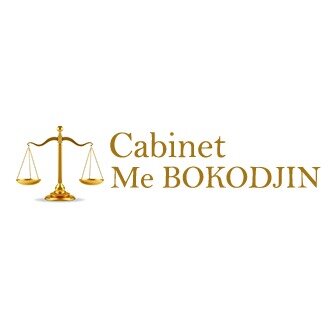Best Conveyancing Lawyers in Lomé
Share your needs with us, get contacted by law firms.
Free. Takes 2 min.
Free Guide to Hiring a Real Estate Lawyer
List of the best lawyers in Lomé, Togo
About Conveyancing Law in Lomé, Togo
Conveyancing is the legal process of transferring ownership of real estate property from one person or entity to another. In Lomé, the capital city of Togo, the conveyancing process involves a series of legal and administrative steps to ensure that property transactions are valid and binding under Togolese law. The process covers various aspects such as drafting and signing contracts, verifying land titles, checking for encumbrances, and registering new ownership with the appropriate government offices. Due to the complexity of the local real estate system and the importance of legal compliance, conveyancing in Lomé often requires involvement of qualified legal professionals such as lawyers or notaries.
Why You May Need a Lawyer
There are several reasons why you might require a lawyer when dealing with conveyancing in Lomé:
- Property Purchase or Sale - Whether buying or selling a property, legal expertise ensures the transaction is lawful and protects your interests.
- Investigating Land Title or Ownership - Lawyers can confirm the legitimacy of a property's title and ensure it is free from disputes or legal restrictions.
- Drafting and Reviewing Contracts - Professional advice is crucial for accurate contract preparation, reducing the risk of future disputes.
- Resolving Boundary or Ownership Disputes - Lawyers assist with negotiation, mediation, or litigation if property boundaries or ownership are in question.
- Registration and Compliance - Completing all legal filings with public land registries requires knowledge of detailed procedures, which a legal professional can facilitate.
- Understanding Complex Regulations - Local laws can change, and a lawyer is best placed to advise on current regulations affecting conveyancing.
Local Laws Overview
Conveyancing in Lomé, Togo, is governed by a mix of national property laws, urban development codes, and customary land regulations. Some key aspects include:
- Title Verification - It is essential to confirm the land has a clear, undisputed title registered with the Direction Générale des Impôts et Domaines (General Directorate of Taxes and Domains).
- Role of the Notaire (Notary) - Official notaries play a central role in drafting conveyancing documents, authenticating signatures, and ensuring payment of taxes and fees.
- Land Survey Requirements - A certified land survey may be required to clarify property boundaries before a sale or purchase.
- Transfer Taxes and Fees - Several taxes and administrative fees must be paid prior to or during the registration process.
- Registration Process - Every property transfer must be recorded in the land registry, and failure to do so can void the transaction.
- Customary vs. Modern Law - Some land is still subject to customary law, requiring additional consent from local chiefs or communities for transactions.
- Purchase by Foreigners - Foreign ownership is permitted but subject to specific regulations and sometimes additional governmental approval.
Frequently Asked Questions
What is the first step when buying property in Lomé?
The first step is to conduct a search at the land registry to confirm the legal status of the property and verify the seller's ownership.
Must I use a notary in a conveyancing transaction?
Yes, Togolese law requires the involvement of a qualified notary to formalize the conveyancing process and authenticate all relevant documents.
What documents are needed for property transfer?
Typically, you will need the property title, IDs of buyer and seller, a sale agreement, proof of payment of taxes, and a land survey report.
How long does the conveyancing process take in Lomé?
The process can take from a few weeks to several months, depending on the complexity of the transaction and how quickly necessary documents and approvals are obtained.
Are there taxes on property transfers?
Yes, property transfer taxes and registration fees must be paid as part of the conveyancing process. The notary usually calculates and collects these fees.
Can a foreign national buy real estate in Lomé?
Foreign nationals are permitted to buy property, although additional formalities and approvals may be required in some cases.
What happens if there is a dispute over land ownership?
Disputes can be settled through negotiation, mediation, or recourse to the courts. A lawyer is essential for resolving such disputes.
Is it possible to purchase land that is subject to customary law?
Yes, but this process is more complex and may require agreements with local authorities or chiefs in addition to formal government registration.
What is the risk of not registering a property transfer?
Failure to register a property transfer can result in loss of legal ownership and inability to enforce property rights.
How can a lawyer help during conveyancing?
A lawyer ensures legal compliance, represents your interests in negotiations, handles all documentation, and provides peace of mind throughout the transaction.
Additional Resources
For those seeking reliable information or assistance regarding conveyancing in Lomé, the following resources can be useful:
- Direction Générale des Impôts et Domaines - Government body responsible for land titles and property registration.
- Ordre National des Notaires du Togo - Professional association for notaries, providing listings and guidance for legal transactions.
- Ministère de l’Urbanisme, de l’Habitat et de la Réforme Foncière - Ministry overseeing urban development and land reforms.
- Local Bar Associations - For assistance locating qualified lawyers experienced in property law.
- Legal Aid Clinics - Some NGOs and organizations provide basic legal assistance to property buyers and sellers.
Next Steps
If you are considering buying or selling property in Lomé, it is best to seek professional legal advice early in the process. Start by researching the background of the property, then consult a qualified notary or lawyer familiar with local conveyancing laws. Gather all necessary documents and be prepared to pay statutory taxes and fees. Always insist on officially registering the property transfer to safeguard your rights. If you encounter obstacles or disputes, do not hesitate to approach a legal professional for representation and guidance to ensure a smooth and lawful transaction.
Lawzana helps you find the best lawyers and law firms in Lomé through a curated and pre-screened list of qualified legal professionals. Our platform offers rankings and detailed profiles of attorneys and law firms, allowing you to compare based on practice areas, including Conveyancing, experience, and client feedback.
Each profile includes a description of the firm's areas of practice, client reviews, team members and partners, year of establishment, spoken languages, office locations, contact information, social media presence, and any published articles or resources. Most firms on our platform speak English and are experienced in both local and international legal matters.
Get a quote from top-rated law firms in Lomé, Togo — quickly, securely, and without unnecessary hassle.
Disclaimer:
The information provided on this page is for general informational purposes only and does not constitute legal advice. While we strive to ensure the accuracy and relevance of the content, legal information may change over time, and interpretations of the law can vary. You should always consult with a qualified legal professional for advice specific to your situation.
We disclaim all liability for actions taken or not taken based on the content of this page. If you believe any information is incorrect or outdated, please contact us, and we will review and update it where appropriate.











